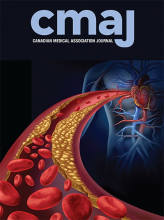In their recently updated guideline for depression screening during pregnancy and the postpartum period, the Canadian Task Force on Preventive Health Care concluded that evidence is uncertain as to whether screening is beneficial relative to usual care.1 This was the key driver in their recommendation not to screen for depression during pregnancy and the postpartum period.
To identify evidence, the Task Force undertook a systematic review of randomized controlled trials (RCTs) and, to our disappointment, excluded other study designs from their evaluation. Although the RCT is considered a gold standard for comparative effectiveness research given its protection against bias, the shortcomings of RCTs, such as lack of generalizability of study findings to real-world settings, are often undervalued.2 Evidence suggests that a well-designed observational study can yield similar results to an RCT.3 Observational studies that use health administrative data are increasingly being used to support population-level research and health decision-making.4
In Alberta, screening for postpartum depression (PPD) takes place during well-child visits. Using longitudinal data from a prospective birth cohort linked to provincial public health, inpatient, outpatient and physician claims administrative data, we conducted a pragmatic evaluation of the PPD screening pathway to examine its effectiveness and cost-effectiveness.5,6 We calculated the odds of diagnosis, pharmaceutical treatment and resource use, and found that screening was effective at directing resources to Albertans in need; patients screened at high risk of PPD were nearly 4 times more likely to receive a diagnosis for PPD than those who were not screened.5 At a population level, screening identified an additional 813 patients with PPD relative to not screening, and was considered cost-effective.6 Although the Task Force made a key assumption that, as part of usual care, providers routinely inquire about and are attentive to maternal mental health and well-being, our research did not have to make this assumption; we were able to test it directly. Our study factored in real-world practice settings and used evidence gathered for a population who experience PPD in Canada.
Although we appreciate that, historically, evidence-based medicine has encouraged the use of a firm hierarchy of evidence to support comparative effectiveness research, the value of using a broader range of research designs to support population-level research and decision-making is increasingly recognized. Our study findings were clear; in Canada, PPD screening is beneficial for patients in the postpartum period and is cost-effective for the public health system, relative to not screening. Excluding this research from the evidence assessed for guidelines may create negative implications for people in Canada.
Footnotes
Competing interests: None declared.
This is an Open Access article distributed in accordance with the terms of the Creative Commons Attribution (CC BY-NC-ND 4.0) licence, which permits use, distribution and reproduction in any medium, provided that the original publication is properly cited, the use is noncommercial (i.e., research or educational use), and no modifications or adaptations are made. See: https://creativecommons.org/licenses/by-nc-nd/4.0/











